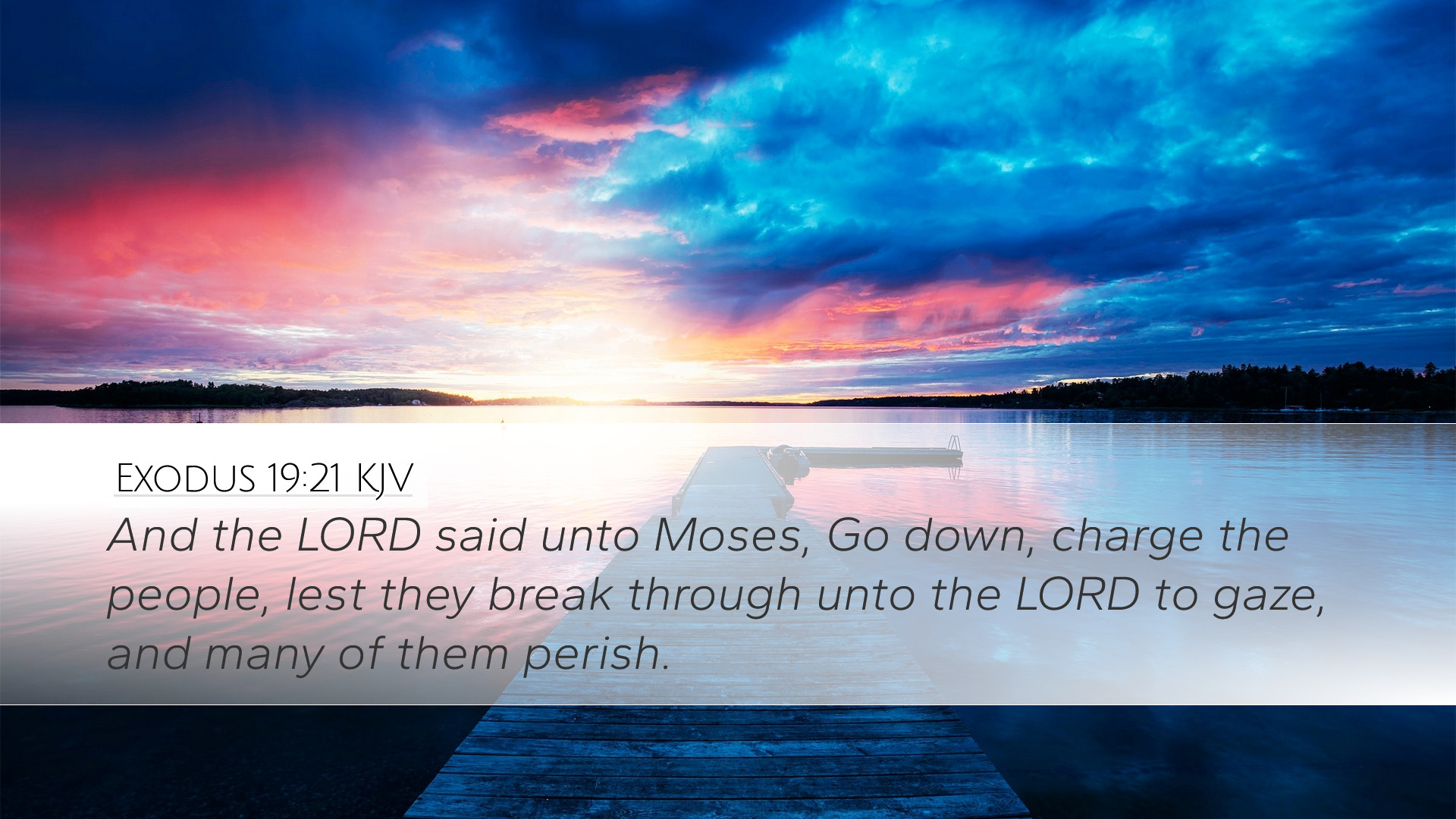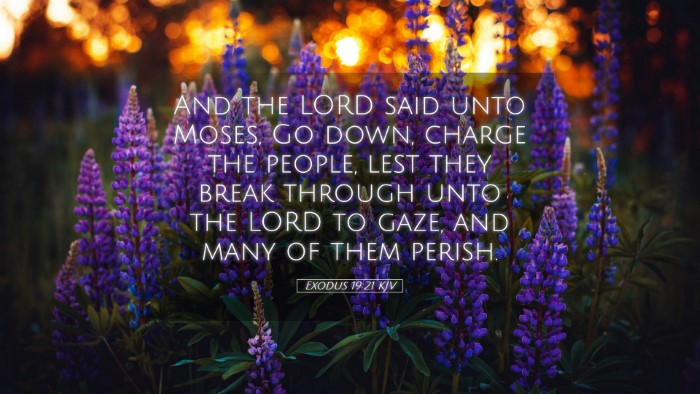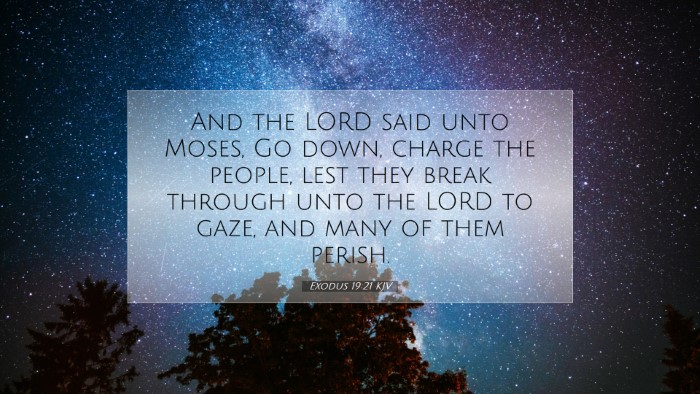Exodus 19:21 Commentary
Verse: "And the LORD said unto Moses, Go down, charge the people, lest they break through unto the LORD to gaze, and many of them perish."
Introduction
This verse arises in the context of Israel's preparation to meet God at Mount Sinai. The scene is dramatic, filled with thunder, lightning, and the sound of a trumpet. The holiness of God and the need for reverent fear are vividly conveyed. Public domain commentaries such as those by Matthew Henry, Albert Barnes, and Adam Clarke provide rich insights into the significance of this encounter.
Theological Significance
The command for Moses to descend to the people holds multiple dimensions of meaning. Each commentator stresses the need for a proper understanding of God's holiness and the appropriate response required from humanity.
1. The Holiness of God
Moses is reminded of God's holiness. Matthew Henry highlights that God's presence must be approached with reverence and awe. It is not to be treated lightly; thus, the people are warned not to break through the barriers set for their protection. This emphasizes the theological concept that while God desires a relationship with His people, there are necessary constraints established on that relationship due to His holiness.
2. The Role of Mediation
Albert Barnes discusses Moses as a mediator between God and the people, noting that Moses’ descent symbolizes his role as an intercessor. This parallels the New Testament concept of Christ as the ultimate mediator. The warning serves to remind the Israelites that they must not presume upon God's grace, but recognize the appointed means through which they may approach Him.
3. The Danger of Presumption
Adam Clarke elaborates on the idea that presumption can lead to spiritual peril. The people’s attempt to approach God without proper understanding and respect could lead to dire consequences, as indicated by ‘many of them perish’. Clarke argues that this serves as a cautionary tale against taking God’s holiness lightly, even amidst a community chosen for His purposes.
Exegesis of Key Terms
Analyzing key terms in this verse allows for a richer understanding:
- Charge: This term implies an urgent command necessitating immediate attention. Henry explains that Moses is to strictly instruct the people to restrain themselves from improper behaviors.
- Break through: This phrase denotes a reckless, uncontrolled urge to breach the distance established by God. Barnes notes that spiritual boundaries should be respected, highlighting the importance of understanding one's limits in approaching the divine.
- Perish: The potential outcome of disobeying God's command indicates the severity of the situation. Clarke emphasizes that God's justice is not to be mocked, laying emphasis on the gravity of disrespecting divine instructions.
Practical Implications for Today
For modern readers, the implications of Exodus 19:21 extend beyond its historical context:
- Understanding God’s Holiness: Today's believers are called to recognize and respect the holiness of God. This means approaching worship, prayer, and community life with reverence.
- The Importance of Mediators in Worship: Just as Moses served a vital role, pastors and church leaders today are essential as mediators, guiding congregations in approaching God appropriately.
- Balancing Intimacy and Reverence: While the New Testament reveals our access to God through Christ, it does not diminish the call to reverence. The church must tread carefully between personal intimacy with God and the acknowledgment of His majesty.
Conclusion
Exodus 19:21 serves as a profound reminder of God's holiness and the necessary boundaries He sets for His people. The insights from Matthew Henry, Albert Barnes, and Adam Clarke reinforce the message about reverence, mediation, and the dangers of spiritual presumption. As modern believers engage with this text, they are called to embrace a posture of humility and honor in their approach to the divine.


